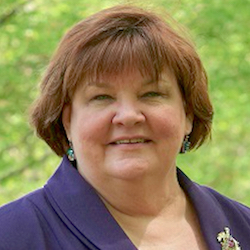
Can a cognitive rehabilitation therapy from Japan alleviate symptoms such as apathy and depressed mood and improve quality of life and cognitive and physical functioning in older adults who have mild to moderate dementia? Nine senior living communities are going to be helping researchers find out over the next six months as they participate in a national study of SAIDO Learning. The trial, funded by the Cleveland-based Reinberger Foundation, began March 1.
Co-principal investigators of the research are Michael E. Felver, M.D., the medical director of the Center for Rehabilitation at the Cleveland Clinic, and Patricia A. Higgins, RN, Ph.D., an associate professor and researcher at the Frances Payne Bolton School of Nursing of Case Western Reserve University in Cleveland.
SAIDO Learning is a nonpharmacologic cognitive rehabilitation therapy developed by the Kumon Institute of Education in Japan. Through the method, a caregiver engages residents in a series of simple arithmetic, writing and reading exercises five days a week for 30 minutes each day. By stimulating the prefrontal cortex of the brain, the therapy seeks to improve cognitive function. SAIDO Learning already has been practiced for more than a decade in more than 1,400 nursing facilities in Japan, where it has shown positive results.
The new trial is testing the treatment at five U.S. communities: Covenant Retirement Communities’ Covenant Village of Golden Valley, which offers a continuum of care in Minneapolis; Deupree Cottages, an Episcopal Retirement Services skilled nursing facility in Cincinnati; Devon Oaks, an Eliza Jennings assisted living community in Westlake, OH; Meridian Village, a Lutheran Senior Services continuing care retirement / life plan community in Glen Carbon, IL; and the Good Shepherd Home in Fostoria, OH.
Eliza Jennings was the first U.S. senior living organization to test and offer SAIDO Learning. Afterward, it began the Cleveland-based SAIDO Learning Institute, through which it works with partner organizations to offer the therapy at other locations.
Four additional communities will serve as control sites for the new study: Laurel Lake, a CCRC in Hudson, OH; Chapel Hill Community, a United Church Homes CCRC in Canal Fulton, OH; Foulkeways at Gwynedd, a CCRC in Gwynedd, PA; and Village at Sprenkle Drive, a SpiriTrust Lutheran CCRC in York, PA. Residents in the control groups will participate in cognitive/social stimulation or enhanced socialization activity.
A control community’s perspective
Mary T. Knapp, RN, MSN/GNP, NHA, FAAN, director of health services at Foulkeways, told McKnight’s Senior Living that she first learned about the SAIDO trial at a conference and thought it would be a good fit for the community. If the research determines that the program is effective, she anticipates that Foulkeways will begin offering SAIDO Learning to residents.
Among the programs that control group members at Foulkeways will use is the Music and Memory program, Knapp said, noting that the CCRC has been a certified Music and Memory community since 2015.
“Residents are given iPods with personalized music to help with the daily pressures of living with dementia,” she said. Foulkeways’ music library has more than 18,000 songs spanning 25 genres, Knapp said.
Foulkeways also offers several other programs for residents with dementia, she said.
The Functional Lifestyle Initiatives in Place, or FLIP, program, led by Fitness Director Carolyn Leevy, consists of regularly scheduled exercise groups that take place with residents seated in chairs. The exercises have the goal of improving range of motion, hand-eye coordination and executive function thinking skills.
“The residents who attend these classes may have given up their fitness routine in the gym or pool or may be transitioning from physical and occupational therapy on our campus,” Knapp said.
Foulkeways also holds two brain fitness sessions per week, open to all residents, and one “Train the Brain” class for residents with moderate dementia. These efforts are led by Sue Schulz, director of activities, who has been with Foulkeways for 29 years. The sessions aim to stimulate various brain functions, such as executive thinking, reasoning, awareness, perception, knowledge, intuition and judgment.
“Back in 2008, Sue attended a seminar sponsored by the Pioneer Network, responsible for the culture change movement,” Knapp said. “Shortly after, Foulkeways started our own set of classes, and we’ve been going strong every Wednesday since October 2008.”
Last year, Foulkeways implemented Opening Minds through Art, a way for those with memory loss to express themselves by creating art. OMA was founded in 2007 by Elizabeth “Like” Lokon, Ph.D., of the Scripps Gerontology Center in the College of Arts and Sciences at Miami University in Athens, OH.
“A member of the Foulkeways activities staff, Peggy Yates, spent four days being trained as an OMA facilitator,” Knapp said. “When Peggy returned from training, she shared with great enthusiasm, ‘Completing a college degree in art history can’t compare to the life-changing experience I had learning how to use the OMA program with residents!’ ”
At the university, undergraduates are paired with older adults with dementia for OMA, whereas at Foulkeways, resident volunteers from independent living and retired staff help.
“Peggy leads two 10-week sessions per year,” Knapp said. “The beautiful aspect of OMA is the one-on-one relationship-building. Every week, the same volunteer assists the same resident. So far, our experience with the OMA has been life-changing for both our residents and volunteers.”



